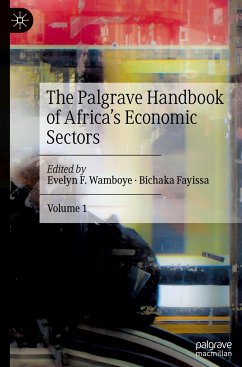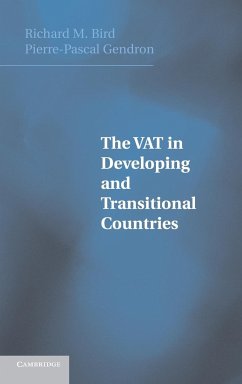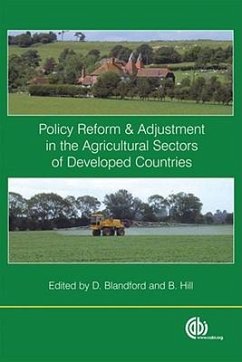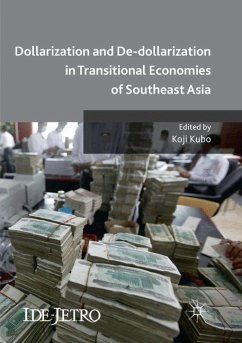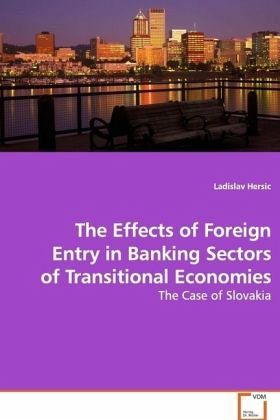
The Effects of Foreign Entry in Banking Sectors of Transitional Economies
The Case of Slovakia
Versandkostenfrei!
Versandfertig in 6-10 Tagen
52,99 €
inkl. MwSt.

PAYBACK Punkte
26 °P sammeln!
This research project undertook a combinedquantitative and qualitative analysis of the foreignentry effects on domestic banking in Slovakia duringthe first eight years of the country's existence. Theresearch results suggest that straightforwardassessing of foreign entry effects is difficult as itlargely depends on the specific conditions of thecountry's financial sector development. Moreover, theorganisation of financial markets, bank supervisionand regulation as well as legal infrastructure, stateinfluence and past experience plays a significantrole in shaping domestic banks' behaviour. There...
This research project undertook a combined
quantitative and qualitative analysis of the foreign
entry effects on domestic banking in Slovakia during
the first eight years of the country's existence. The
research results suggest that straightforward
assessing of foreign entry effects is difficult as it
largely depends on the specific conditions of the
country's financial sector development. Moreover, the
organisation of financial markets, bank supervision
and regulation as well as legal infrastructure, state
influence and past experience plays a significant
role in shaping domestic banks' behaviour. The
research results have not supported the view that the
opening of financial sectors of transitional
economies or developing countries could lead to
destabilisation or introduces crisis into the systems.
The foreign banks seemed to explore the market upon
arrival to decide on future strategies. Once
established, however, the banks began to converge in
terms of their activities, if not their attitudes.
Limited offers of creditworthy customers were quickly
substituted with large involvement of their
activities on inter-bank and government debt market.
quantitative and qualitative analysis of the foreign
entry effects on domestic banking in Slovakia during
the first eight years of the country's existence. The
research results suggest that straightforward
assessing of foreign entry effects is difficult as it
largely depends on the specific conditions of the
country's financial sector development. Moreover, the
organisation of financial markets, bank supervision
and regulation as well as legal infrastructure, state
influence and past experience plays a significant
role in shaping domestic banks' behaviour. The
research results have not supported the view that the
opening of financial sectors of transitional
economies or developing countries could lead to
destabilisation or introduces crisis into the systems.
The foreign banks seemed to explore the market upon
arrival to decide on future strategies. Once
established, however, the banks began to converge in
terms of their activities, if not their attitudes.
Limited offers of creditworthy customers were quickly
substituted with large involvement of their
activities on inter-bank and government debt market.





